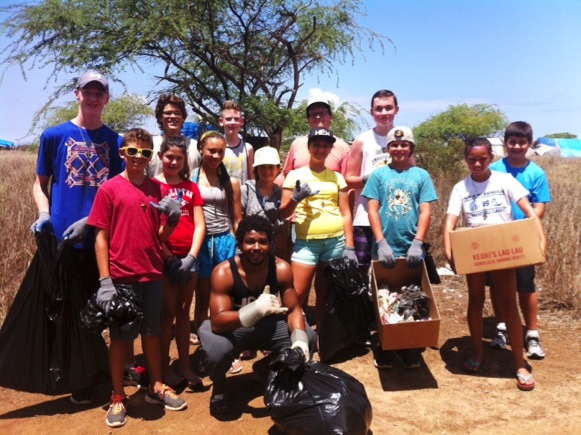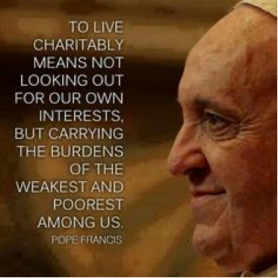During the past several years and particularly during the last several weeks as the legislative season moves towards its closing, it has become more and more apparent that public and private policy makers have increasingly ignored the Hawaiian culture and concerns when reaching their decisions impacting present and future components of our community. The mandated historical preservation processes, traditional water resource management, and cultural protocol relating to land use have generally been ignored by many agencies and departments of the federal, state/counties, and a cultural sensitivity to the impact of decisions on historical and contemporary Hawaiian places and practices has been clearly absent. Two or three specific issues might illustrate this principle.
According to credible sources, the U.S. Navy has indicated that they will turn over five hundred acres of their Kalaeloa lands to a commercial private sector developer for the building of private residences. No mention of community input, no mention of the historical or cultural importance of this land to the Hawaiian people, no recognition and provision for the critical water resources beneath this land, no consultation with the Department of Hawaiian Home Lands, and a seeming lack of interest in the opinions of Hawaiians and non-Hawaiian community members have characterized this egregious and insensitive decision. I know that “to the victor belong the spoils” is the catch phrase in the exercise of military and political power, but in the past it has been a bit more subtle. It seems the velvet glove has come off.
It is interesting that most tourists come to Hawai‘i in great part because of the presence and power of the Hawaiian culture.
Just recently we also learned of the dismissal of the Hawaiian Cultural Director of the Hawai‘i Tourism Authority, after ten years of being a voice for the host culture in the organization that represents and promotes the largest industry in the state after military spending. It is interesting that most tourists come to Hawai‘i in great part because of the presence and power of the Hawaiian culture. It seems that authentic Hawaiian culture, traditions, and values are being abandoned by industry promoters in favor of slick generic beach promotion and Disney plastic tikis and cartoon caricatures. Pohō.
Another point of irritation in this vein is the fact that the Hawaiian culture is the only major ethnic group lacking a cultural center to celebrate its rich history and presence in our community. The Filipinos, the Okinawans, the Japanese, the Chinese, the Koreans, and others have their stand-alone centers. In a curious proposal, the HTA is offering to put a Hawaiian Cultural Center on the roof of the Convention Center. I suspect this is done to pay for the repair of major issues they have had with the roof and in hopes of financially saving that debt-ridden facility. Shame on them. How about OHA stepping forward and putting a real testimony to the Hawaiian culture, music and dance on their Kaka‘ako property? In a pono world, Hawaiian culture should be a priority for Hawaiian cultural organizations.

There are many more examples of this blatant disregard by our policy makers for issues of importance to the Hawaiian community, but I will close with another example of this widening disregard. The current legislature and state administration have been lukewarm, at best, in working to provide the Department of Hawaiian Home Lands (DHHL) with the resources needed to process applications for housing and land leases. This is despite the ruling of the Hawai‘i Supreme court that highlights this failure of the state to uphold its commitment to fund these administrative activities, a major part of the constitutional agreements included in Hawai‘i’s admission as a state in 1959 (see Nelson case). For eight decades, the continuing failure to fund the process of leasing by the department has, in part, led to the decades-long waitlist for DHHL leases. Today there are over twenty-thousand on the waitlist, and DHHL has struggled to get the resources to manage an efficient processing program. Many Hawaiians die while on the waitlist and thousands are kept from having a piece of their ‘aina. Let’s see what emerges. I tend to believe that this administration and legislature will again affirm its lack of serious interest in fulfilling the state’s obligations to the Hawaiian community, which would allow more Hawaiians home ownership.
How can we claim to be the land of aloha when aloha is absent from the heart of those who are shaping the present and future of our community??
I trust that the Hawaiian leadership and friends of the Hawaiian culture will begin to stand up in the face of this dismissal of the Hawaiian people by the political and economic power brokers in our community. This dismissal is mean spirited, exploitive, and lacks the amazing values and perspectives that our kūpuna call us to model. How can we claim to be the land of aloha when aloha is absent from the heart of those who are shaping the present and future of our community?? It is important that Hawaiians resist the “culture of shame” that drives a consistent dismissal of our culture and our place in our homeland. To put a positive face on a negative reality, perhaps it is time for our Hawaiian leaders to model clearly the power and healing nature of servant leadership. The contrast to the present behavior of our political leaders may lead to a true return to our cultural values in our public policy debate. Perhaps the time of ahonui (patience) is pau and kū pono (stand for righteousness) should be the lens we use to view those who govern us.






